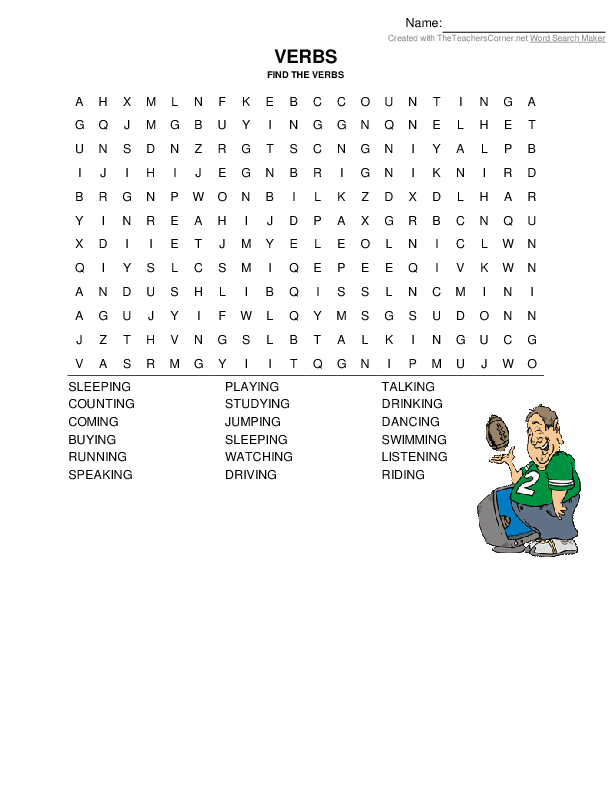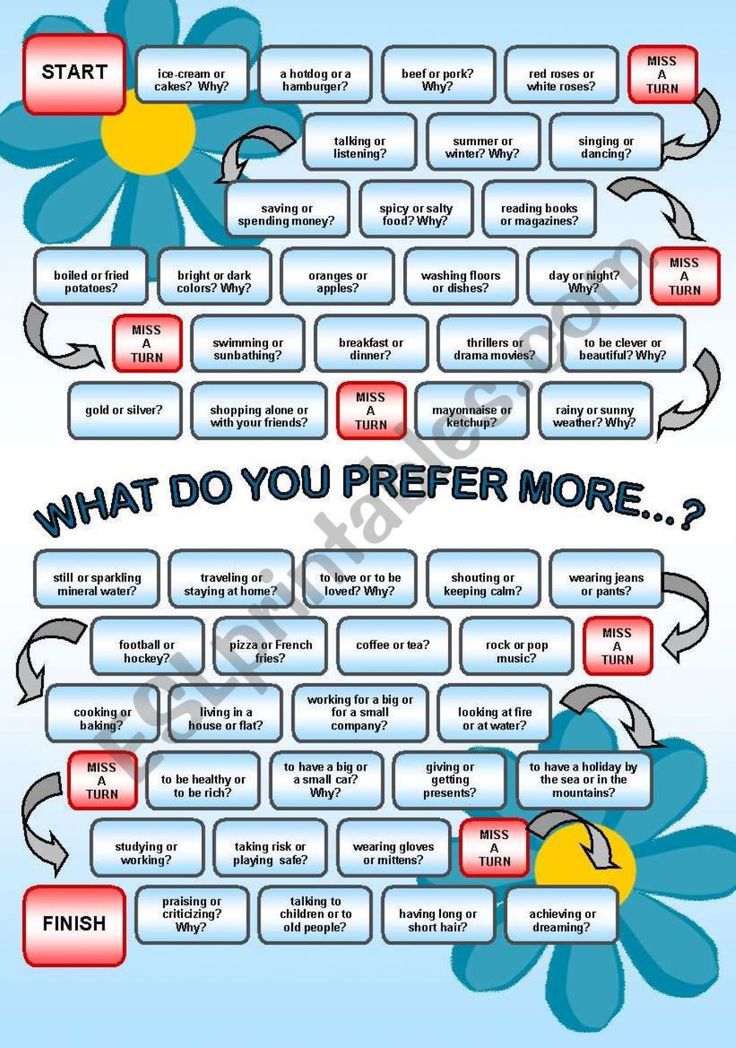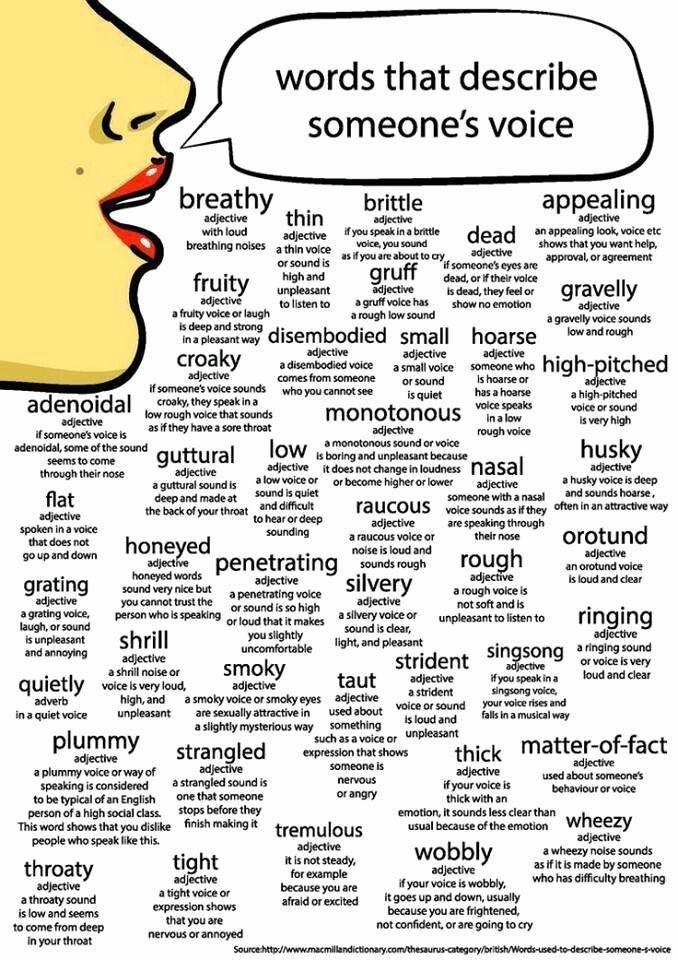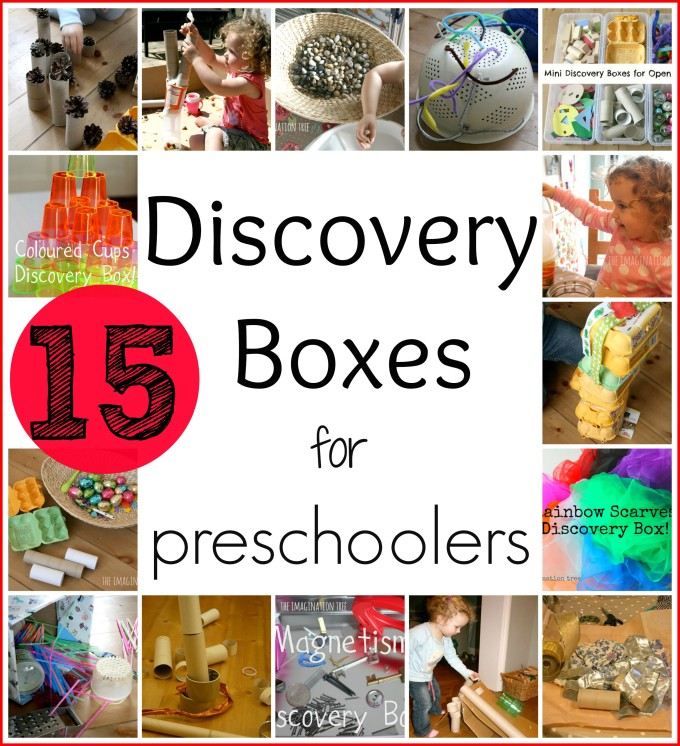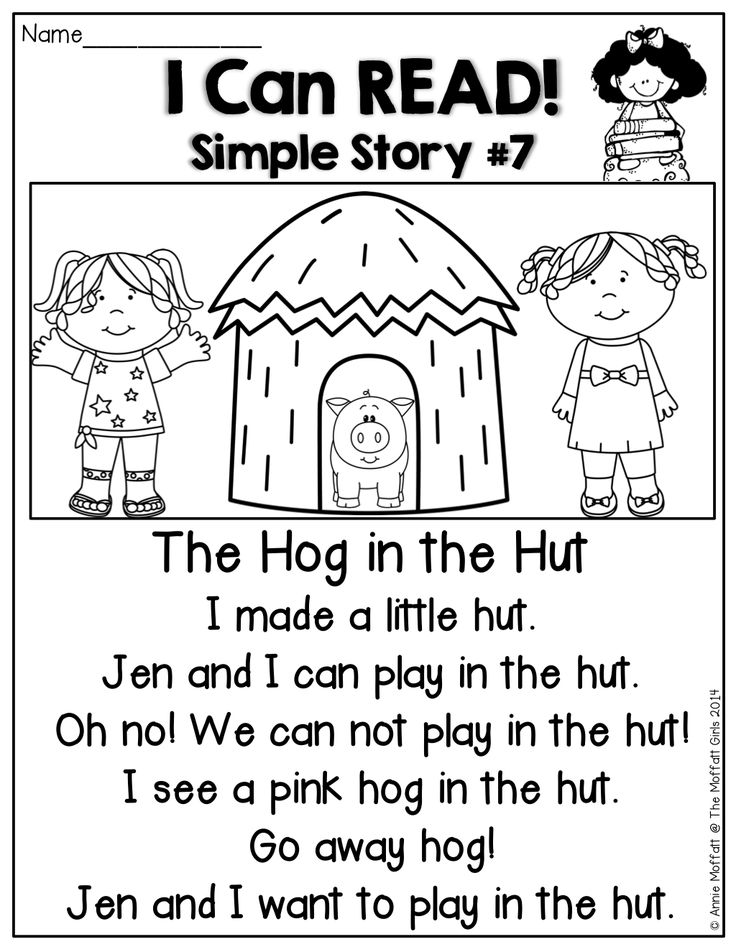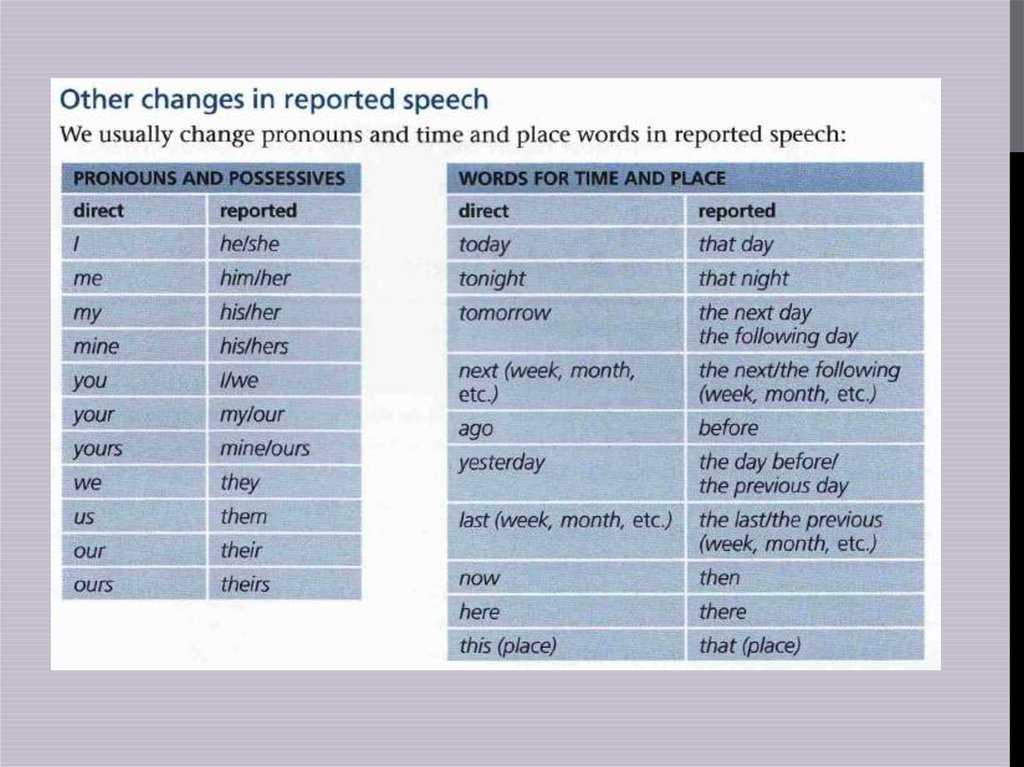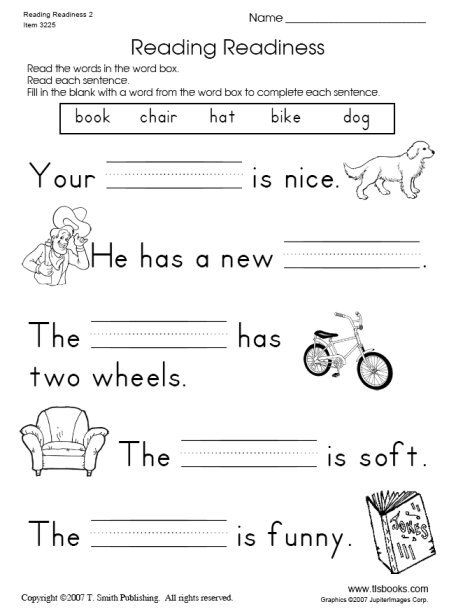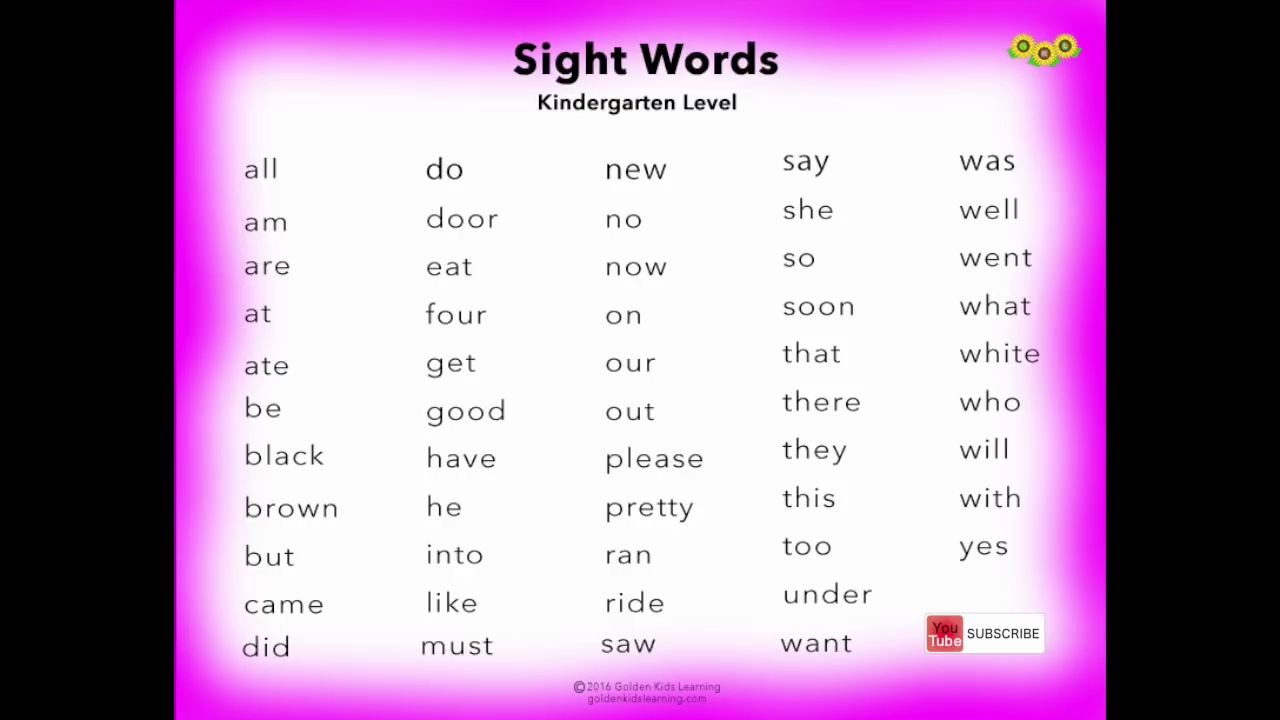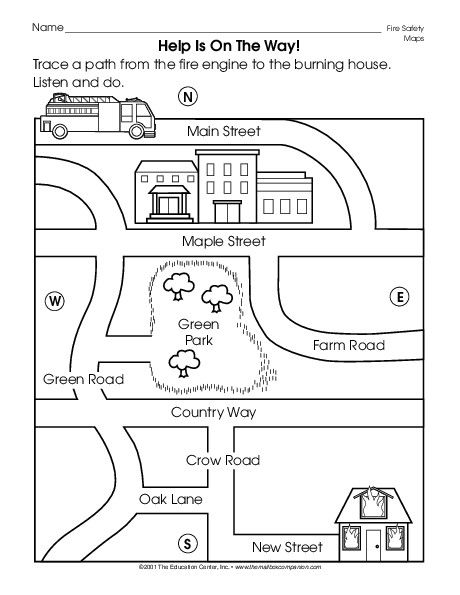Verbal word games
Fun Spoken Word Games You Can Play Anywhere
Playing word games with friends and family can be a lot of fun, but you may not always have access to a chalkboard, a giant pad of paper, or a series of flashcards. That doesn’t mean that games are off the table. Well, at least figuratively, because there are all sorts of fun spoken word games you can literally play anywhere, including off the table.
Whether you’re self-isolating at home or you’re taking a road trip across the country, verbal games can be both entertaining and educational! Go ahead and play in pairs or small groups.
I Spy (With My Little Eye)
While tradition dictates that “I Spy” is played on long car journeys, it’s actually better to play when you’re going to be in one physical place for the duration of the game. You wouldn’t want to lose sight of the object that you spy, right?
Young girl playing game I Spy (With My Little Eye)
The basic rules are that one player is designated as the spy, choosing an object or item clearly within view. For example, let’s say the spy chooses a flower. Then, they’d say, “I spy with my little eye something beginning with F.” The other player or players then try to guess the object. They might ask yes-or-no questions for more information. “Is it blue?”
Other variations include:
I spy with my little eye something that is blue. (color)
I spy with my little eye something that rhymes with floor. (rhyming words)
I spy with my little eye something that is fast. (other characteristic)
20 Questions
In many ways, 20 Questions is very similar to I Spy. The main difference between these conversation games is that you don’t need to actually see the chosen object with 20 Questions. And, as the name clearly indicates, the “guesser” is limited to a total of 20 yes-or-no questions to figure out what the target object is.
Some variations of the game include the final guess as part of the 20 question limit, whereas others say the final guess is in addition to the 20 questions.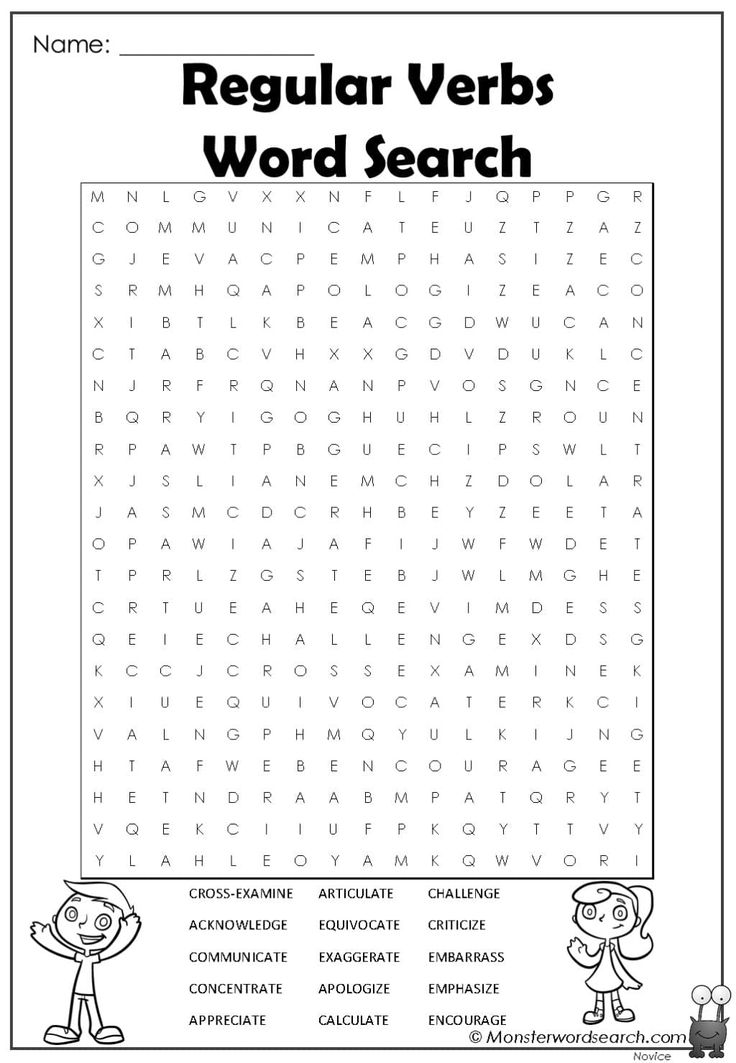 That’s up to you to decide.
That’s up to you to decide.
Charades
Prefer spoken word games that are a little more active? Charades may be more your jam. For this game, you’ll need at least two teams of two players each. One person goes up with a clue and must act out the word, phrase or title without making a single sound. The other player or players on their team then try to guess the word, phrase or title.
Funny how such a popular verbal game involves complete silence from one of the players, right? If you need inspiration coming up with charades clues, YourDictionary has an extensive charades words list for kids to get you started.
True Story
How good are you at telling a lie and sticking with it? One player describes, in a single sentence, an experience that they’ve had. This experience might be a true story or it might be made up. The other player or players then have the opportunity to ask follow-up questions, and the storyteller has to respond accordingly.
You can decide on either a time limit (like five minutes) or a set number of questions (like 10 questions).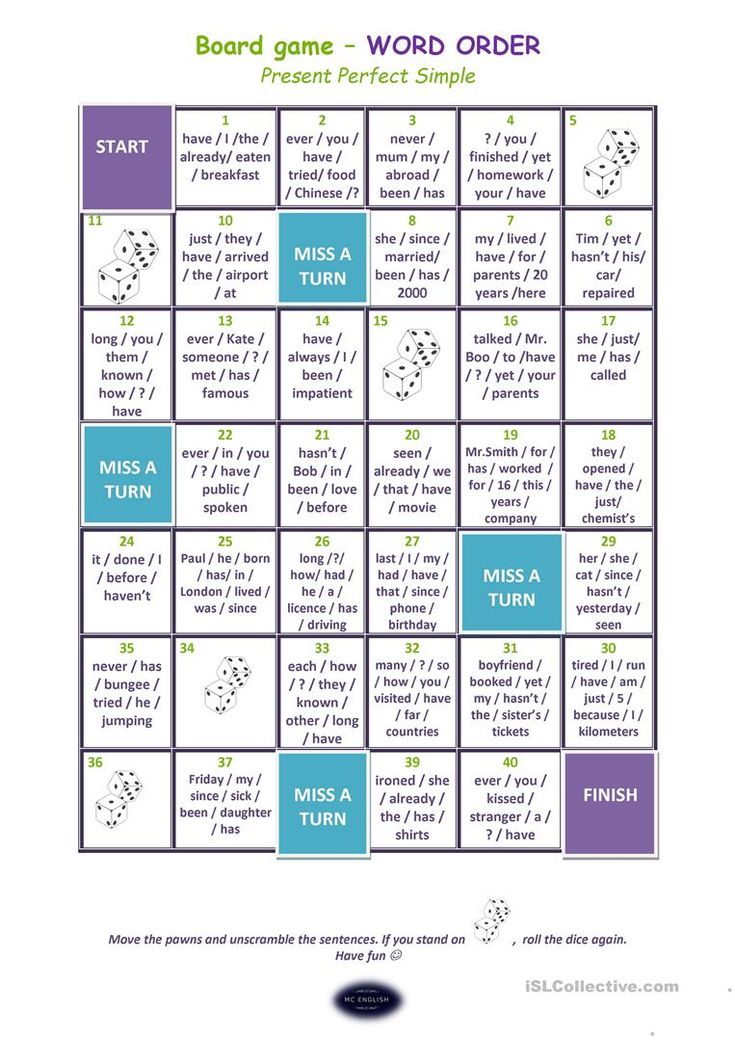 After that, they have to guess whether or not it is a true story.
After that, they have to guess whether or not it is a true story.
Similar conversation games can be less personal but equally entertaining.
Look up an obscure fact on your phone (or one that you already know) instead of telling a story. This can be a common myth or misconception too. The other players ask questions and then they guess whether it’s fact or fiction.
You can also do the same with an obscure word and its definition. Is “emordnilap” a real word? Or did you just make it up?
Sparkle
Want to add a dash of education into the mix? If you’ve got younger children who are learning how to spell (or adults who aren’t very good at spelling), then Sparkle is one of the best spelling word games you can play! It’s best enjoyed with a group of at least about six players, topping out at a typical classroom at around 30 students.
Players sit around in a circle.
The person in charge chooses a word and calls it out.
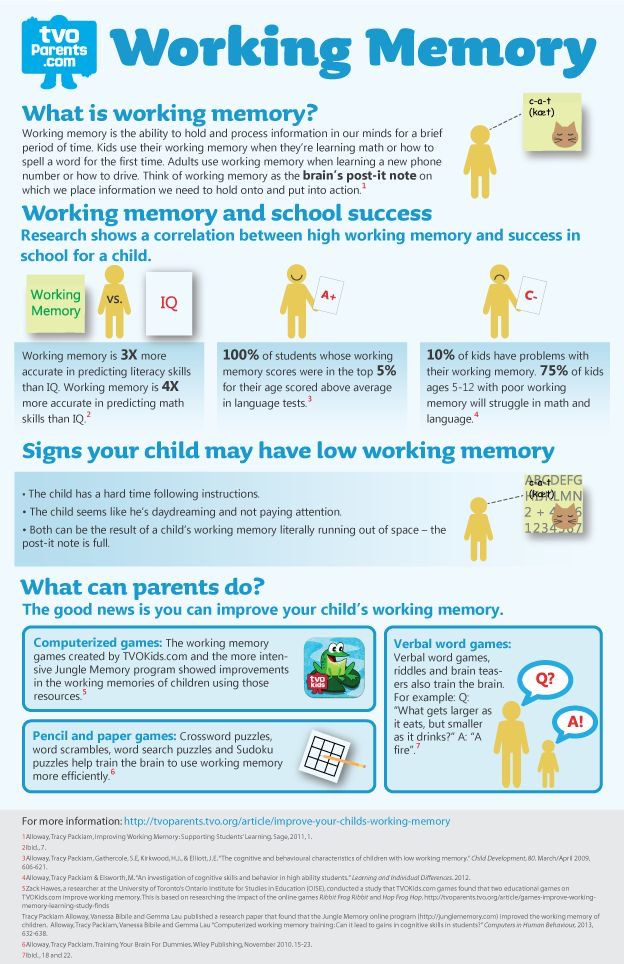
The first person starts spelling it, saying only the first letter.
The next person says the second letter and so on.
The player who says the last letter turns to the next player and says, “Sparkle!” That player is now “out.”
The game continues with a new word with the next player after that.
If anyone suggests a wrong letter along the way, they’re also “out.”
Can your friends spell oxyphenbutazone correctly?
Random Word Game
Many popular vocabulary games, like Boggle and Words With Friends, require a game board or game pieces. But, you can also enjoy verbal games like the Random Word Game to challenge your knowledge and dig deep into your vocabulary. It’s easiest if you sit in a circle to remember whose turn it is.
The first player chooses a word and defines the category. For example, they might say, “The category is wild animals. The first word is tiger.” The second player must then come up with a wild animal that starts with the last letter of “tiger,” like R for “raccoon.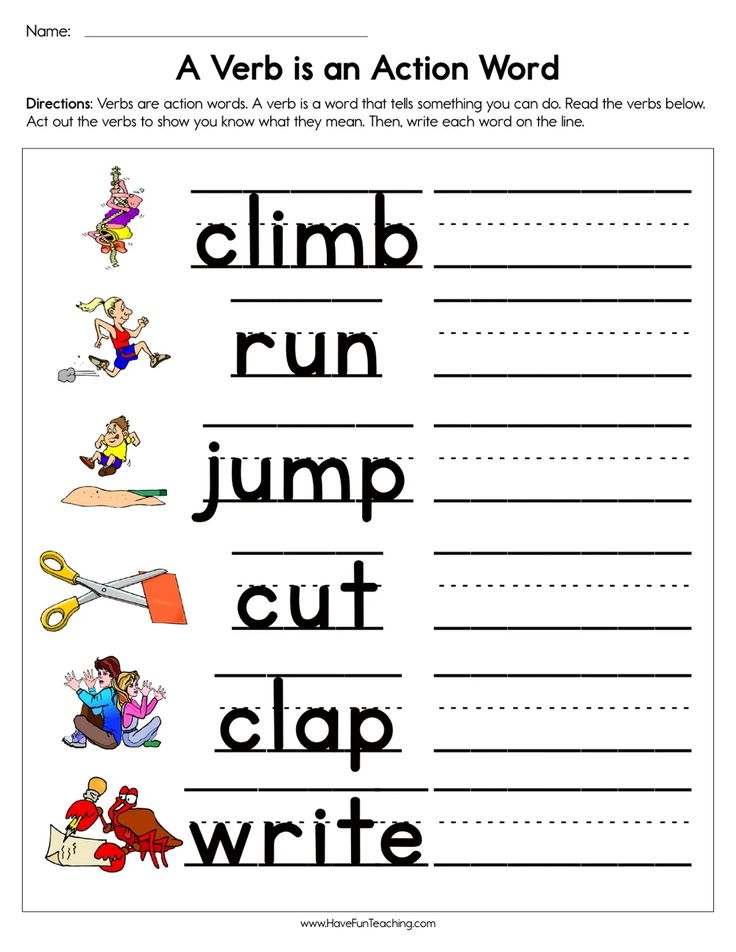 ” The third player must then name a wild animal that starts with the last letter of “raccoon,” like N for “newt.” and so on.
” The third player must then name a wild animal that starts with the last letter of “raccoon,” like N for “newt.” and so on.
Another variation, called the Alphabet Game, involves naming items in the category in alphabetical order. For example, if the category is countries:
The first player might say, “Argentina.”
The second player can then say, “Brazil.”
The third player can say, “Canada,” and so on.
Just hope that you don’t get stuck with harder letters like Q and X!
Common Quality
This verbal game can be enjoyed in pairs or in small groups. The first player starts by naming an object and a quality or characteristic about it. The second player must then name a different object that has the same quality, plus a quality that this new object has. Play goes back and forth (or around, with multiple players).
For example:
Player 1: Daffodils are yellow.
Player 2: Bumblebees are also yellow.
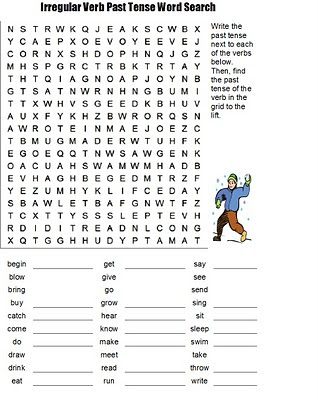 And they’re fuzzy.
And they’re fuzzy.Player 1: Teddy bears are also fuzzy. And they’re loved by children.
Player 2: Candy is also loved by children. And they’re sweet.
And so on...
For an added challenge, you might choose to restrict the objects to a certain category, like “plants” or “household objects.”
Fun With Words With Friends
Board games and mobile games can be a lot of fun. And it helps when you’ve got a clever word-finding cheat tool to help with top scores too. But, even if all you’ve got is your voice, your imagination, and a friend or three, you can still have a terrific time with conversational games and verbal games. And that’s the word. I have spoken.
Michael Kwan is a professional writer and editor with over 14 years of experience. Fueled by caffeine and WiFi, he's no stranger to word games and dad jokes.
13 Fun Verbal & Conversation-Based Games
What we love most about winter in general, and the holiday season in particular is that we spend more time together as families.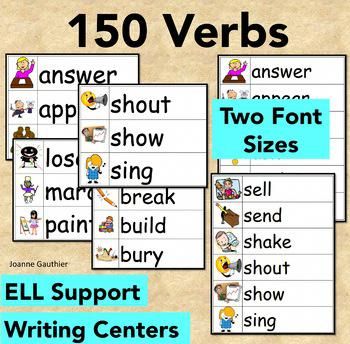 Sometimes, stressors of the day can get in the way, and you can't navigate your worried mind back into the family conversation. Or perhaps, the kids all run away to their gadgets as soon as they finish eating dinner. How do we bring back optimal communication and family fun? With games, of course!
Sometimes, stressors of the day can get in the way, and you can't navigate your worried mind back into the family conversation. Or perhaps, the kids all run away to their gadgets as soon as they finish eating dinner. How do we bring back optimal communication and family fun? With games, of course!
The following games are verbal games - they don't require any accessory but your mind. Some might require some pen and paper, but really, all you need is a little enthusiasm, some imagination, and as much company as you can get! These games can also be played long distance, over the phone, or on a video call.
In fact, they can be quite the learning activity, and you can play them absolutely anywhere; while on walks, during car rides, and even when visiting places. From classic childhood games to insightful and interesting challenges, these conversation games will make any date, dinner, and zoom call unforgettable fun!
1. What’s Better?
This game is a light, enjoyable way to bond with the kids.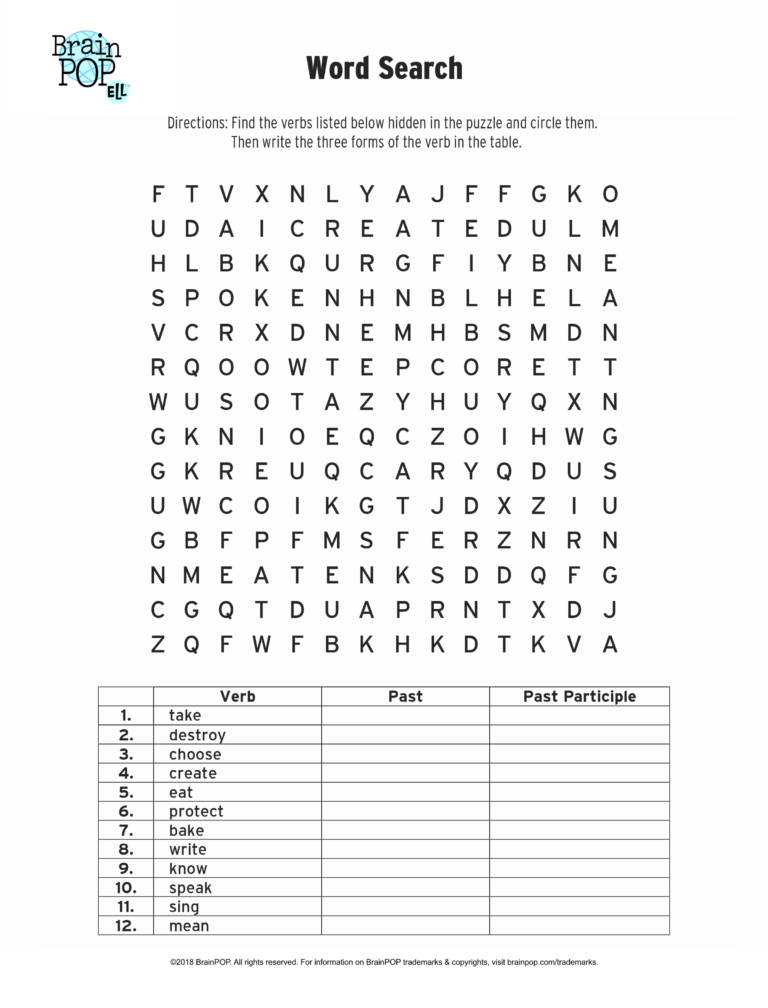 It’s a fast-paced associations game, so it easily engages the players, which must stay alert! You start by picking a general category, like books, sports, TV shows, food, or even places and superheroes.
It’s a fast-paced associations game, so it easily engages the players, which must stay alert! You start by picking a general category, like books, sports, TV shows, food, or even places and superheroes.
The game is played with a lightning round of questions asking about a player's preference for two things that fall under the selected category. Each round is played with two people, where one asks the questions and the other answers. Every subsequent question should contain the previous question's preferred item.
Example:
Q: “What’s better, cheese or candy?”
A: “Candy”
Q: “What’s better, candy or ice cream?”
A: “Ice cream”
Q: “What’s better, ice cream or cookies?”
The most important rule is - the faster, the better. You'll be surprised at all the giggles this creates! The "asker" has to keep thinking of new questions and the "answerer" has to listen attentively.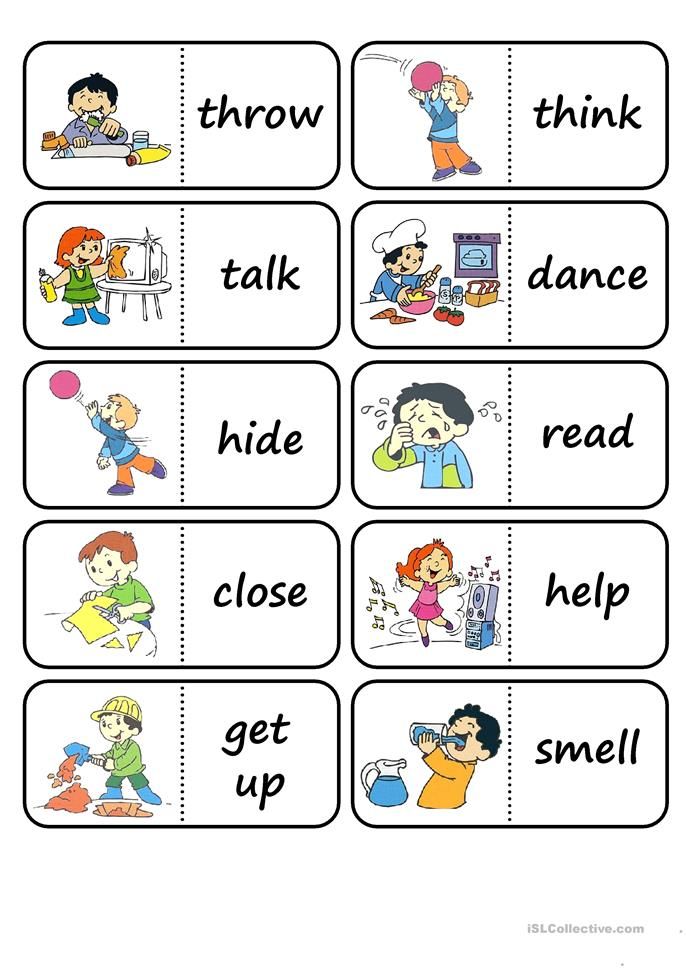 The round ends when an answer or question is delivered too slowly.
The round ends when an answer or question is delivered too slowly.
Picking the topic can also be a fun activity with a group, giving everyone an opportunity to submit their suggestions and debate them. “What’s Better” is a fun and simple way to gain insight into different people's preferences, young and old alike.
2. Fact or Fiction
“Fact or Fiction” is an entertaining and engaging way to expand your mind while testing your knowledge and the knowledge of everyone playing with you. Like “What’s Better”, it can be played by two or more players.
Every participant will look up myths and legends as well as actual facts related to a particular topic. Each player can choose their own topic, or everyone can work on the same topic together. It can be anything from significant events, important monuments, different cultures, or ancient history. Here are some examples to get you started: The French Revolution, the animal kingdom, or American National Parks. Each turn, a player says either a fact or a myth, and other players must guess which it is.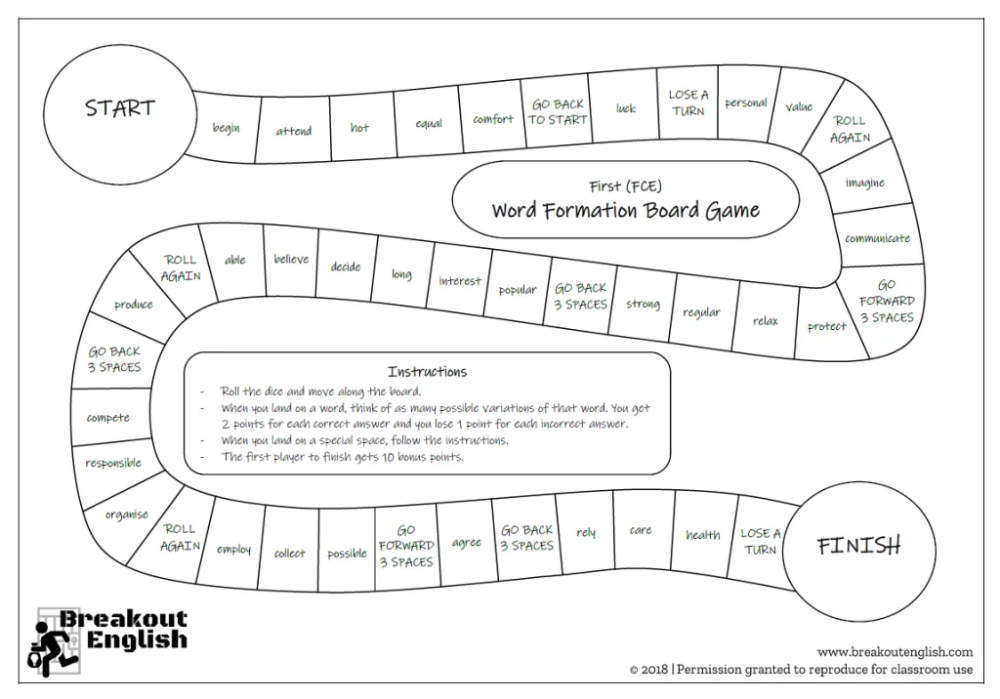
Topic: Animal Kingdom
Player 1: Fact or Fiction? Grizzly bears can run as fast as horses.
Player 2: Fact or Fiction? Flamingos are pink because they eat shrimp
Player 3: Fact or Fiction? Bulls hate the color red
The game will end when you run out of facts or myths. It can also be played in multiple rounds with a single person stating all the possible legends or facts under a particular category, and other players guessing for each round.
“Fact or Fiction” is a wonderful way to learn new things and even spark new interests in different subjects, making it a great game for kids. You can award points to the player that gets the most number of correct guesses and select a grand prize winner at the end of the game.
An alternative way to play
If you want to make this game a little more personal, each player in their turn can present a little-known fact or made-up fact about themselves.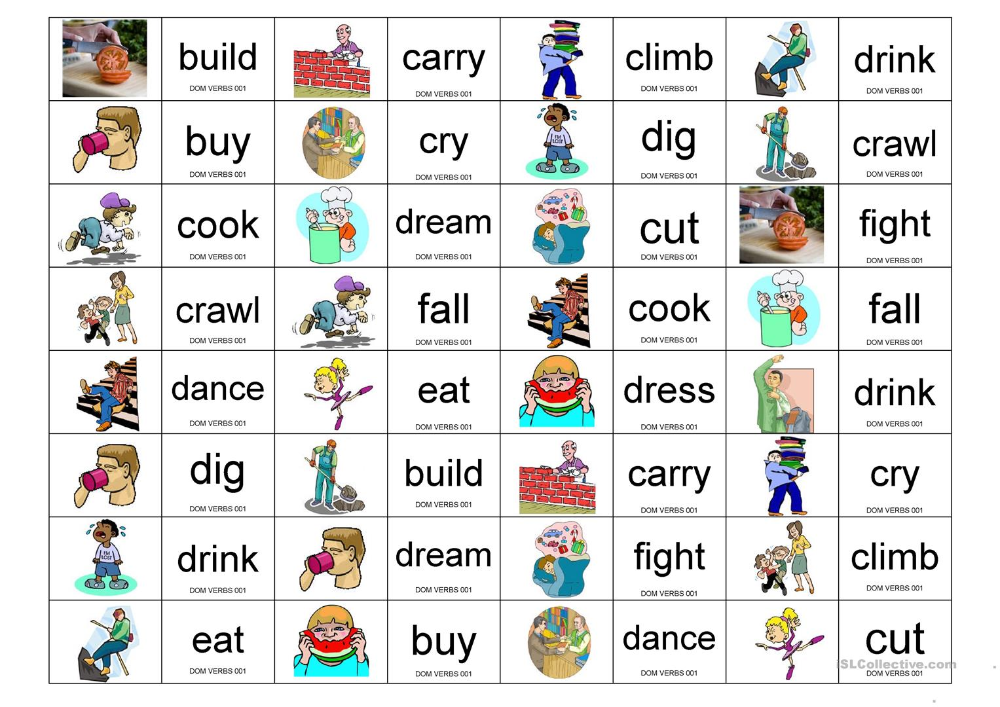 Then the rest will try to guess if it's fact or fiction! This is a great icebreaker or a fun way to get to know your companions. Here's how it goes:
Then the rest will try to guess if it's fact or fiction! This is a great icebreaker or a fun way to get to know your companions. Here's how it goes:
having trouble playing this movie? click here
3. Odd One Out
You can adjust the difficulty level of this game, depending on whether you're playing it with young kids, teenagers, or adults. The premise of the game is simple. On each turn, the player lists a set of three or four items. In each set, one is the odd one out. The other player(s) must guess which is it.
Example:Easy: Cat, Dog, Book.
A: Book - Cats and dogs are living things while a book is a non-living thing.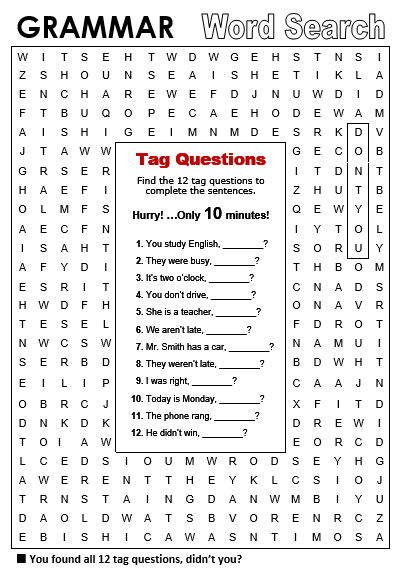
Medium: Train, Car, Boat.
A: Boat - Train and car are vehicles of land while a boat is a water vehicle.
Hard: Frog, Cow, Human, Monkey.
A: Frog - Cows and humans are mammals while frogs are amphibians.
Extra Hard: 53, 68, 79, 91.
A: 68 - 53 and 79 are prime numbers while 68 is not.
Much like “Fact or Fiction”, presenting the sets can be done by one person conducting the round, or it can be done by each player in turns. The subject of each set can be changed at each turn to make the game extra challenging. Points can be awarded for every correct guess of the odd one out, with a final winner being declared at the end of the game.
Need some inspiration for combinations? Here's a food-themed one:
having trouble playing this movie? click here
4.
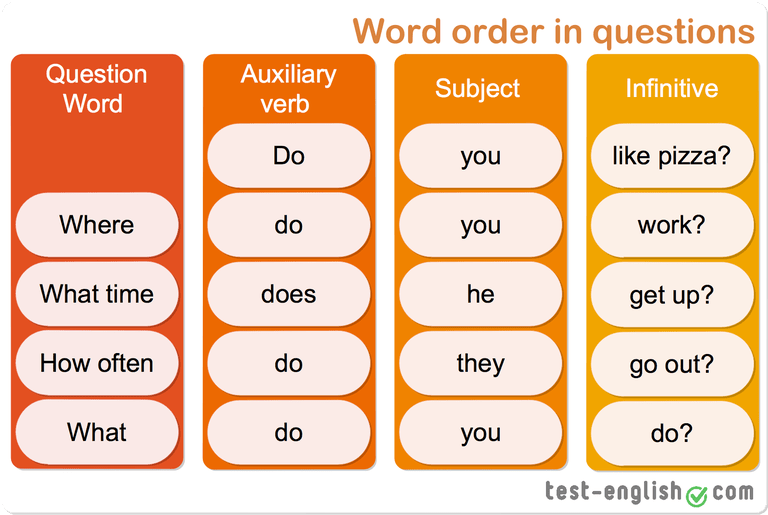 Name, Place, Animal, Thing
Name, Place, Animal, ThingThis verbal game will take you back to cross-country road trips in an old-school RV. Back in the day, there was no built-in entertainment system. Instead, we played either “Name, Place, Animal, Thing”, or 3,000 rounds of “I Spy”. “Name, Place, Animal, Thing” is a fun, challenging way to get those brains revving.
The game is played in multiple rounds (but never quite as many as “I Spy”) and can be played with multiple players. In each round, a letter of the alphabet is randomly selected. As soon as the selected alphabet is announced, all players have a certain amount of time to list a name, a real place, an animal, and an inanimate object all of which must begin with the selected letter.
Example:Selected letter: G
Name: Gary
Place: Geneva
Animal: Gecko
Thing: Gazebo
To make the game harder, remove the letters you already used from the next rounds.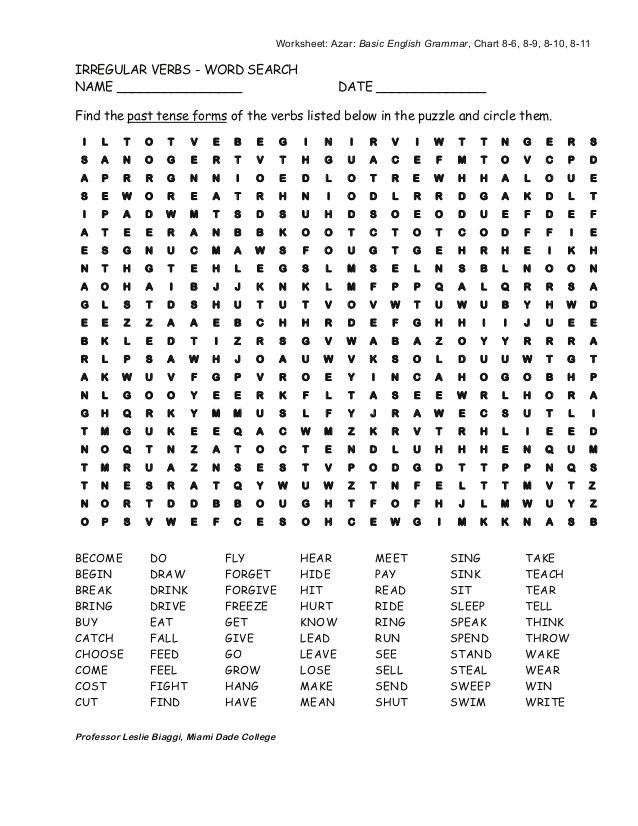 Alternatively, keep using all the letters you used and try to find new answers each time you get them. To add some spice, you can time each round. The shorter the time, the harder it gets!
Alternatively, keep using all the letters you used and try to find new answers each time you get them. To add some spice, you can time each round. The shorter the time, the harder it gets!
Points can be awarded either on the basis of the total number of words each player found within all rounds, or the number of completed rounds (where all 4 categories have been filled). Each player can keep track of their answers in a written table.
5. I Went to the Market
Here’s a game that will not only test your memory but also might help you update your grocery list! The first player starts by saying: "I went to the market and bought a _____". Each player has to recite the previous player's grocery list, and add one item of their own.
Example:Player 1: I went to the market and bought a loaf of bread.
Player 2: I went to the market and bought a loaf of bread and bananas.
Player 3: I went to the market and bought a loaf of bread and bananas and a candy bar.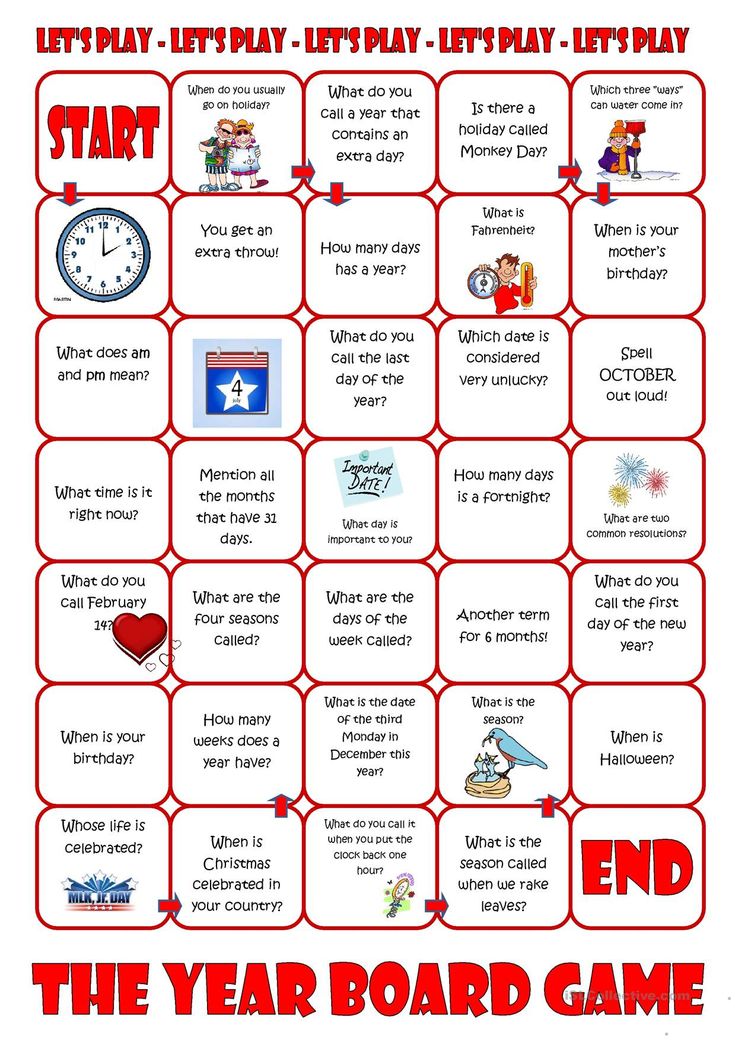
Player 4: I went to the market and bought a loaf of bread and bananas and a candy bar and shoe polish.
The aim is to challenge and develop memory, quick thinking, and creativity. The items must be real. For a real challenge, replace the market with the Zoo, and list only animals. The round ends when a player either forgets previous items or is unable to list a new one. The winner, declared at the end of each round, is the player with the least number of losses.
Watch this lovely family play their version of the game:
having trouble playing this movie? click here
6. Word Tennis
"Word Tennis" will put your vigilance to the test! As the name suggests, the game format is a quick lightning round. It is for 2 to 4 players.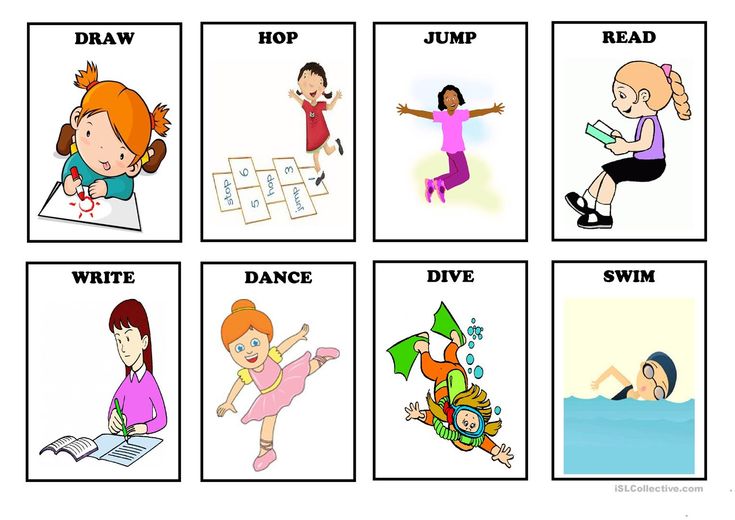 There are two versions of this game that can be played. The first is called “Sound Tennis” and the second is called “Rhyming Tennis”.
There are two versions of this game that can be played. The first is called “Sound Tennis” and the second is called “Rhyming Tennis”.
In “Sound Tennis”, either a sound or letter is chosen at random by the oldest member of the group. For example, the letter “P” or the sound “Sh”. Each player must then say a word starting with the selected sound or letter in rapid succession.
Example:Selected Sound: Sh
Player 1: Sheep
Player 2: Shock
Player 3: Shot
In “Rhyming Tennis”, a similar concept is applied to rhyming words. You first select the suffix (“at”, “ay” or “ess”). Then each player lists out words from that family in a quickfire round.
Example:Rhyming Family: Ay
Player 1: Stay
Player 2: Fray
Player 3: May
Important rules: You can't repeat a word that was already said.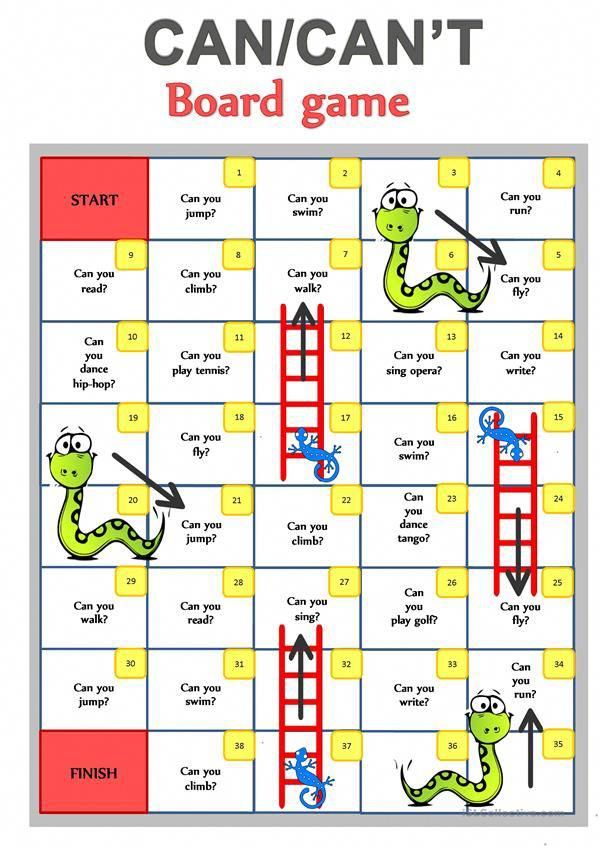 The round ends when a player runs out of words to add to the chain. The player with the least number of losses or the highest number of wins at the end of the game is the final winner.
The round ends when a player runs out of words to add to the chain. The player with the least number of losses or the highest number of wins at the end of the game is the final winner.
7. Just a Minute
This game is where all great public speaking skills come out. It can be played with just 2 people but it's best suited for a larger group. The rules of this game are very simple: Every turn, a player is given a topic. They must speak on that topic for just a minute. Sounds easy enough, right? Well, it's not THAT easy...
The challenge is to select relatively obscure or unknown topics, those that don't cross your mind on a daily basis. These topics could range from math or astronomy to the Bermuda Triangle or the extinction of mammoths. If you don't know a single thing about the topic you're given, you can improvise made-up facts. The laughs are guaranteed!
8. Would You Rather
This is a classic we're sure you've heard of before. Most chances you also played it too.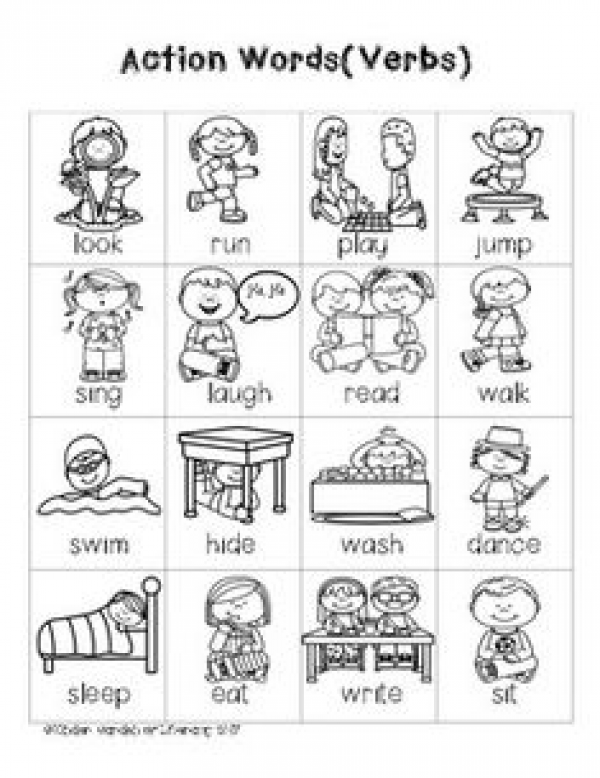 In this verbal game, one player asks their companion what would they rather have between two choices. This game is an invitation to explore the weirder edge of the scale.
In this verbal game, one player asks their companion what would they rather have between two choices. This game is an invitation to explore the weirder edge of the scale.
"Would you rather have super-strength or super-flexibility?"
"Would You rather live underwater or in outer space?"
If you like a challenge, add a condition to each one:
"Would you rather be able to speak with animals, but never be able to disclose what they say, or be able to fly, but never be able to swim again?"
"Would you rather be able to breathe underwater but never enjoy chocolate cake again, or have unlimited funds for your every wish but must wear jeans to sleep every night?"
The stranger it gets, the better!
9. The Alphabet Game
"The alphabet game" is a brain-strain for every age. Pick a topic (like cities, countries, garments, foods, colors, numbers, fabrics). Each player must list an item that fits in the category.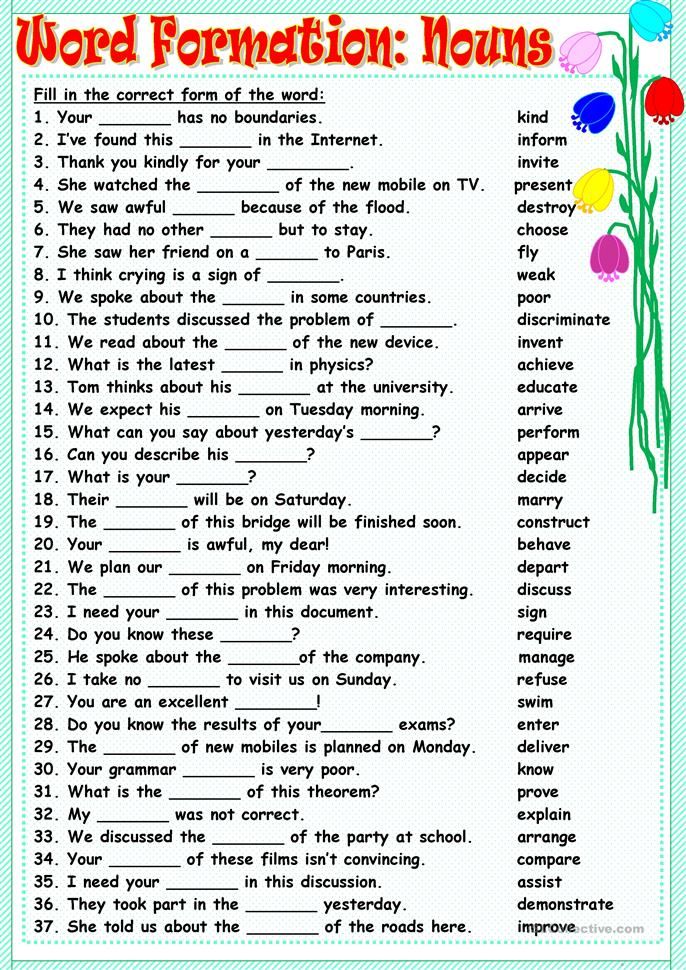 The first will start with the letter A, the second with the letter B, and so forth.
The first will start with the letter A, the second with the letter B, and so forth.
Topic: garments
Player 1: Apron
Player B: Bra
Player C: Cardigan
10. 20 Questions
In this game, fit for two or more players, one player chooses a physical object they think about and the others have to guess what that is. It has to be something material (can't be a concept, idea, memory, or ideology). The rest of the players can only ask yes-or-no questions to try and find out the object. They can only ask up to 20 questions. The more obscure and rare the object is, the more challenging the game becomes. The winner is either the group, if they guessed it in less than 20 questions, or the player if the group failed!
Example:We chose a hat.
Q: "Is it a piece of furniture?"
A: No.
Q: "Is it a garment?"
A: Yes.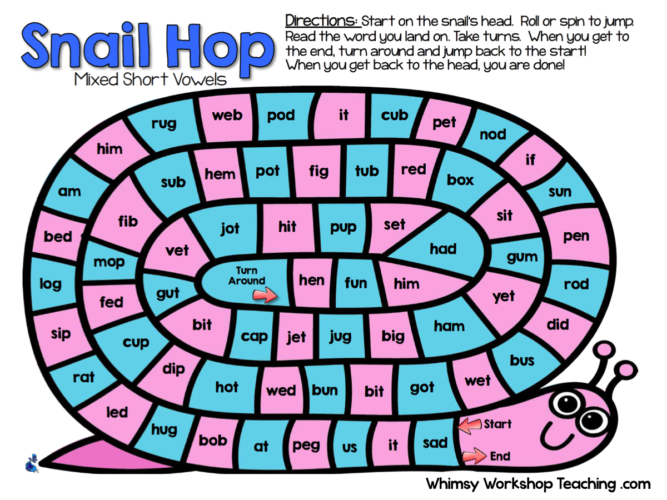
Q: "Is it for winter?"
A: Yes.
Q: "Is it a coat?"
A: No.
having trouble playing this movie? click here
11. Who Am I?
Another classic, this game can be played as a pair but it is much more engaging as a group. Each player gets assigned a real or fictional character. The objective of the game, similar to "20 Questions", is to find out which character is using only yes-or-no questions.
Example:We chose Abraham Lincoln, under the category of Historical Figures.
Q: "Am I a fictional character?"
A: No.
Q: "Am I alive?"
A: No.
Q: "Am I male?"
A: Yes.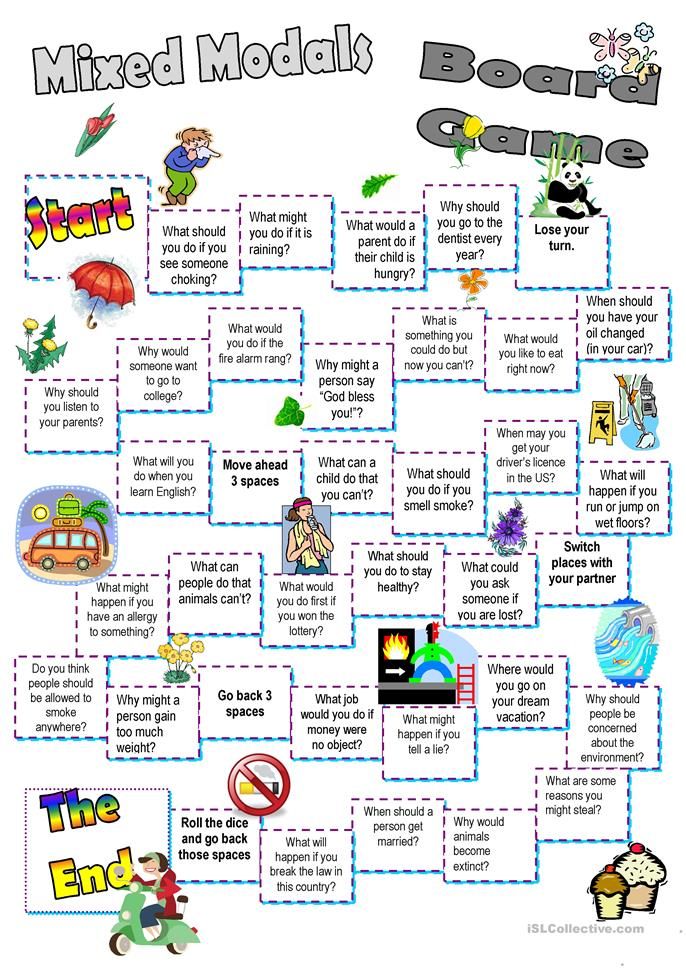
Q: "Am I an artist?"
A: No.
You can ask as many questions as you like. Here's how it goes:
having trouble playing this movie? click here
12. Charades
Another classic game, charades is also about guessing, but this time, the player can't say a word! You might ask, is "Charades" really a verbal game then? Well it is, and one of the oldest. You probably already know the rules, but here they are:
The objective is to communicate an idea successfully through pantomime. Divide into two groups. Every player writes something to be portrayed in pantomime on a note. This can be a song title, a movie or theatre title, a well-known quote or phrase, a book title, or a TV show.
Gather all the notes in a bowl. Everyone sits down while one player pulls out a note from the bowl. They must keep it hidden.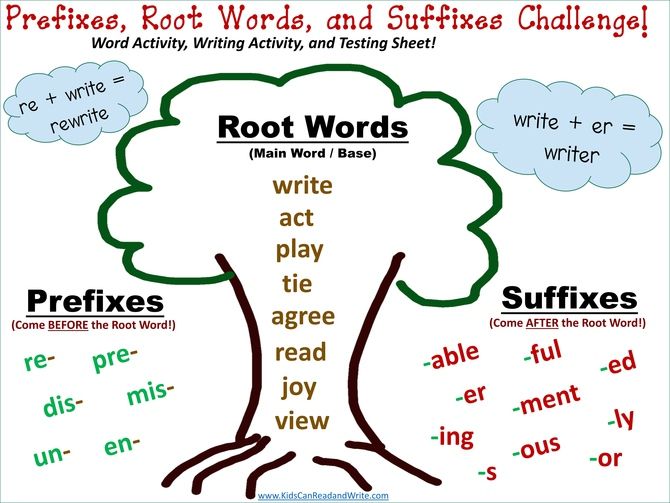 The player then has to try to communicate what's written on the note through gestures alone, no voices allowed!
The player then has to try to communicate what's written on the note through gestures alone, no voices allowed!
If one from the player's group guesses the correct answer first, they get a point. If the opponent group gets it first, no one gets a point. Here are some examples of the gestures:
having trouble playing this movie? click here
13. I'm Bringing to the Party...
This is a verbal game for larger groups containing at least four players. One player leaves the room while the rest agree on a topic that will be the common factor of everything they bring to the party. Once they agree, they invite the other player back in and start listing, one in each turn, what they bring to the party. The player who went outside must guess the common factor.
Example:The common factor is size - everything you bring to the party must be larger than the human scale.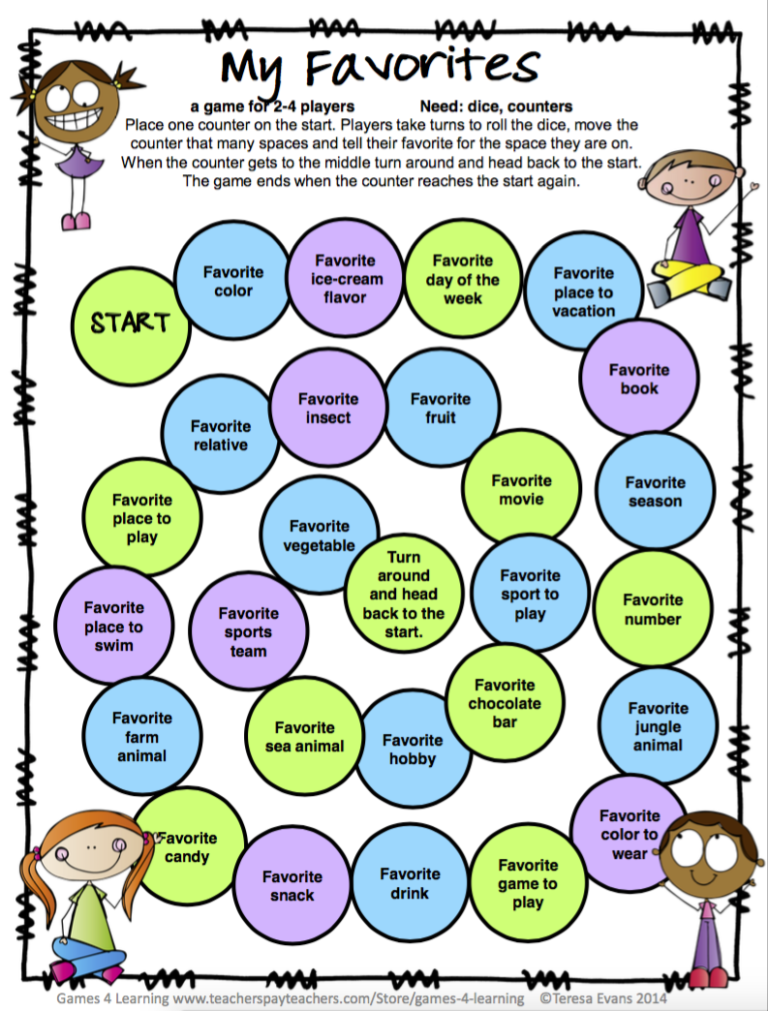
Player 1: "I am bringing an elephant to the party".
Player 2: "I am bringing a skyscraper to the party".
Player 3: "I am bringing a mountain to the party".
The guesser can guess anytime. They have 5 guesses - so make it hard on them!
Share this and let everyone join in on the fun!
7 word games suitable for children of any age
When there is no energy left for active games that require careful preparation, word games come to the rescue. We've put together a selection of seven cool games that all you need to do is be in the company of more than two people and be in a good mood! You can also play them via video link.
1. "Guess the word!"
Number of players: from 2 people
Very simple and funny game. Headphones are put on one player, in which music plays loudly so that he does not hear anything. His task is to guess the word by the lips when another player says it.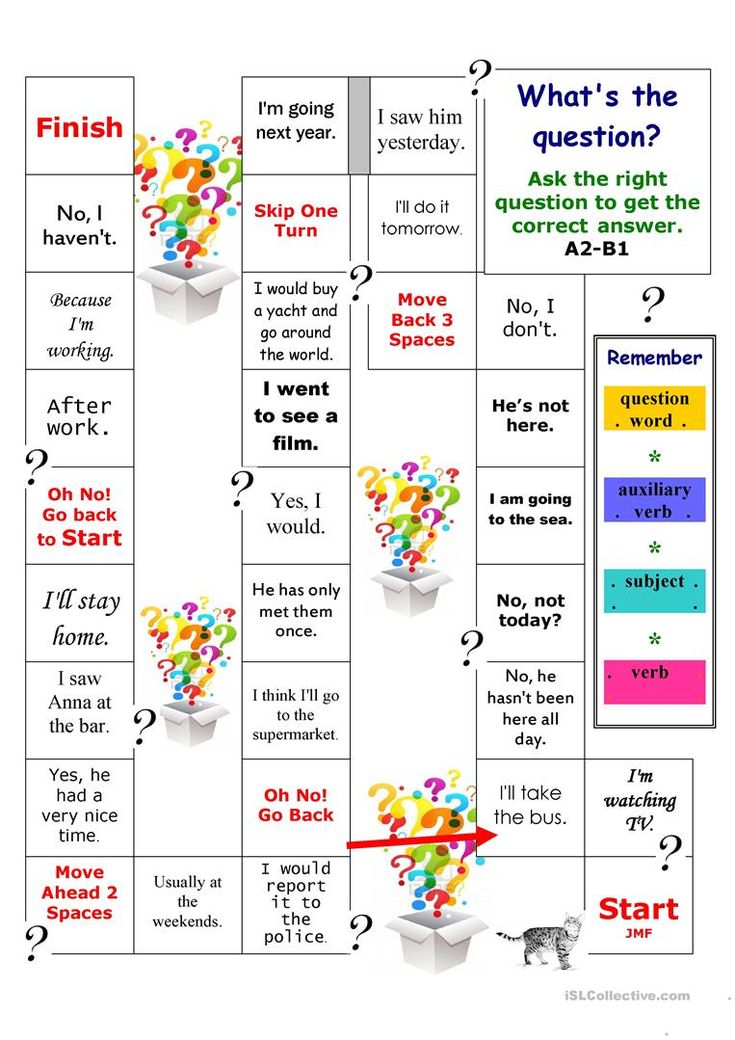 If several people are involved, then you can explain the word in turn or split into pairs.
If several people are involved, then you can explain the word in turn or split into pairs.
2. “I will never…”
Number of players: from 2 people
Today this game has many variations. We offer the most common version. Participants take turns to name some action that they have never done. For example, player A says, "I've never been late for class." Everyone who was late for them bends one finger. The game continues until one of the participants has all their fingers bent. According to the main version of the game, the person who was the first to bend all the fingers lost, but lived the most eventful life!
By the way, you can also play in English if you want a different level of difficulty.
3. "Thematic words"
Number of players: from 2 people
The rules of the game are extremely simple. You and other participants need to come up with a topic on which you will name the words. For example, "school". Then all participants in a circle should name nouns that relate to the main topic.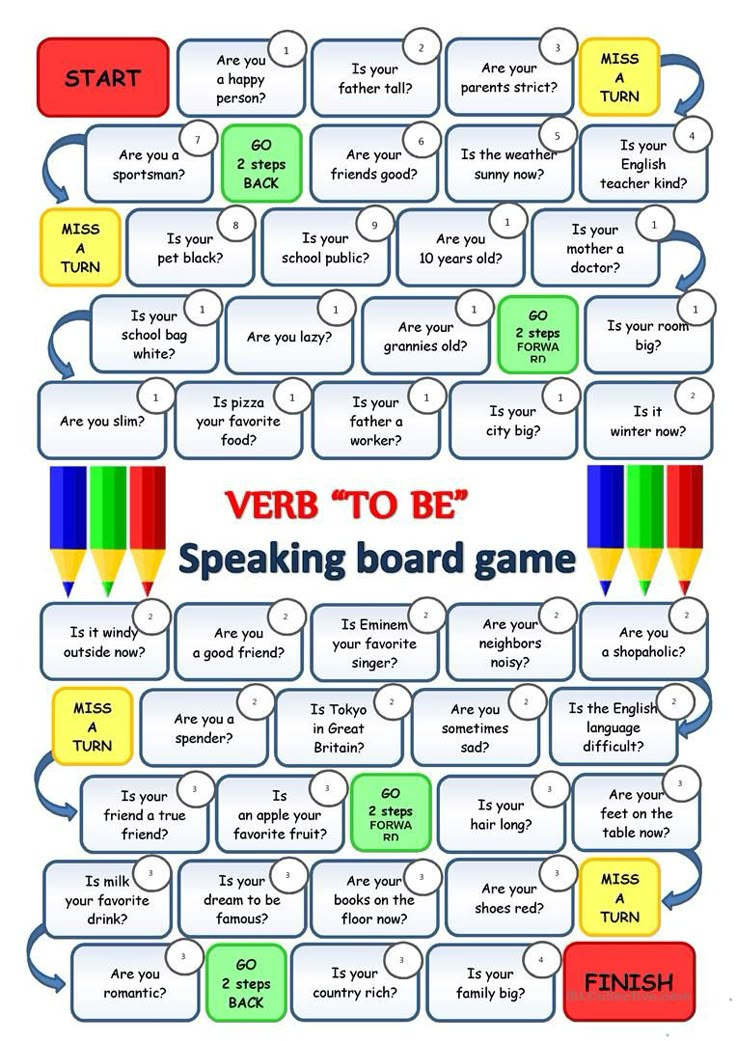 If one of the participants thinks for more than five seconds or repeats an already spoken word, he is eliminated. The last one left wins. When the circle is over, you can start a new one on a different topic until one of the participants wins, for example, three times.
If one of the participants thinks for more than five seconds or repeats an already spoken word, he is eliminated. The last one left wins. When the circle is over, you can start a new one on a different topic until one of the participants wins, for example, three times.
4. "P"
Number of players: from 3 people
First, all players need to agree on which words will be used throughout the game: only nouns, or names, verbs and phrases can be used. Then one player guesses a word in the ear of the other. He must explain it to another participant in the game, using only words that begin with the letter "p" to describe it. For example: “Please look, think, the postman brings mail ...” The task of all players is to name the hidden word. When it is named, the explainer comes up with a new one for the guesser.
If this version of the game is already fed up, we suggest guessing not only a word, but also a letter with which the player needs to explain the word.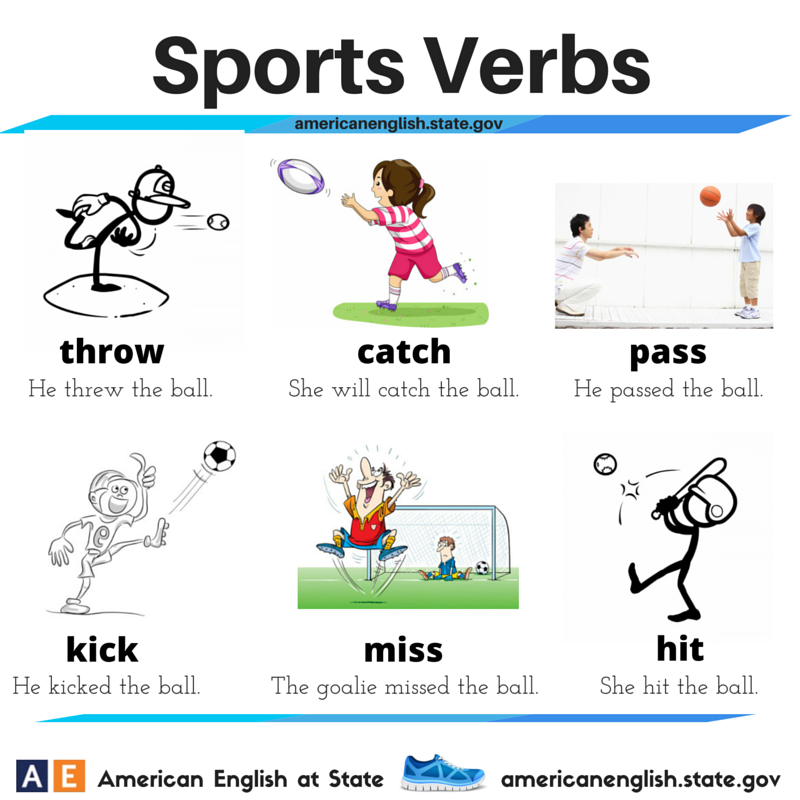
By the way, the explainer also needs to express agreement or disagreement with the train of thought of the players who guess, only in words beginning with the chosen letter. For example, "right" and "think better."
5. "I'm taking with me on a hike..."
Number of players: from 3 people
At the beginning of the game, you need to choose a leader. This person must come up with a principle by which he will take others with him on a campaign. For example, those who name objects with a specific letter, or those whose words consist of five letters.
Next, the players take turns saying the phrase "I'm taking with me on a hike ..." and naming the object. If he fits the conceived principle, then the leader answers: "Yes, and you are going on a hike with me." If the word does not fit: "No, you are not going camping with me."
The task of all players is to guess the principle by which the leader selects people. If one of the participants guesses, he should quietly express his guess in the ear of the presenter or write on the phone.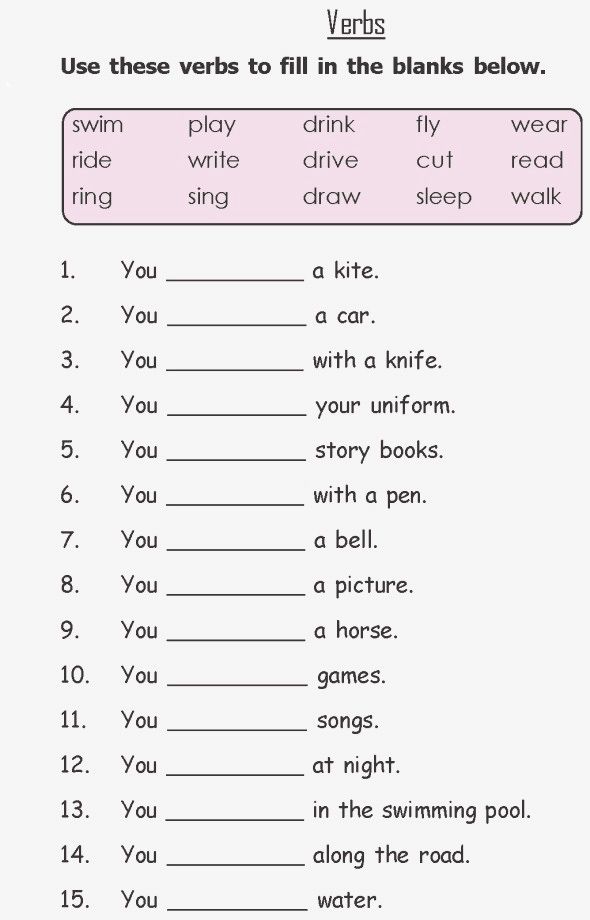 The game continues until everyone has guessed the principle.
The game continues until everyone has guessed the principle.
6. Alibi
Number of players: from 4 people
At the beginning of the game, you need to choose two people who will play the role of criminals. They must isolate themselves from the rest in another room and think through to the smallest detail what they did together on the day they robbed the bank: what the weather was like, what they were wearing, who they met on the street, the whole sequence of actions. The main goal of criminals is to come up with the perfect alibi.
While they are doing this, the other players turn into detectives. They need to come up with 10-15 questions that they will ask the criminals in order to bring them to clean water and solve the crime.
When both teams are ready, the first criminal enters the room and begins to tell what he did on the day of the crime, from morning to evening. It is important that the second criminal at this moment remains in another room and does not hear the speech of the first.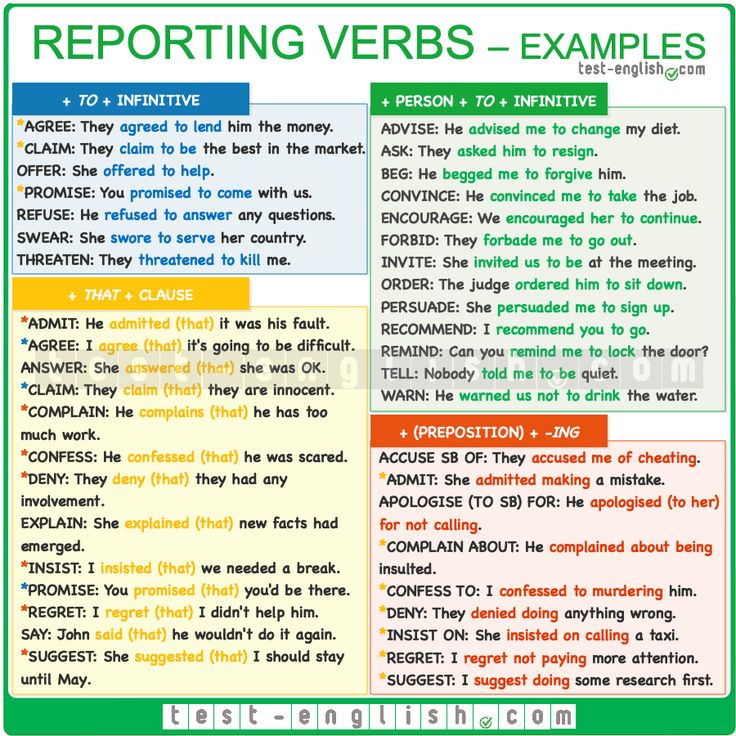 When the first one finishes speaking, the detectives ask him prepared questions and memorize the answers. After that, the second criminal enters the room, tells his story and also answers questions.
When the first one finishes speaking, the detectives ask him prepared questions and memorize the answers. After that, the second criminal enters the room, tells his story and also answers questions.
The team of detectives wins the game if they find three inconsistencies in the criminals' story. For example, one said that they were traveling in the morning by bus, and the other by car. If no disagreement is found, then the team of criminals wins. The number of questions and inconsistencies may change at the request of the participants.
7. "Contact"
Number of players: from 4 people
At the beginning of the game, a leader is chosen. He thinks of a word - a noun in the singular. And calls the other participant the first letter. For example, "a".
Next, any player from the team who has come up with a word for this letter must begin to explain it to his teammates. It is necessary that they guess, but not the host. For example, Sasha says: "This is such a sweet large red fruit that everyone eats in the summer.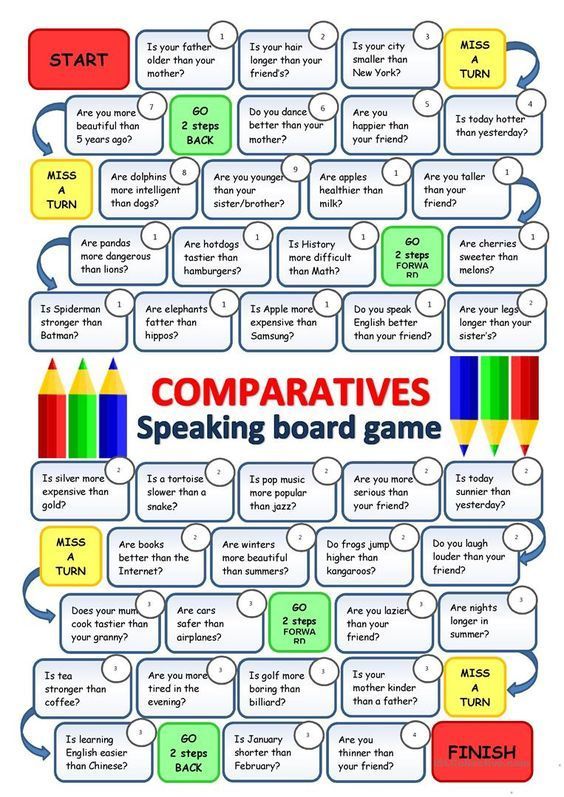 " If one of the players guessed what it was about, he should say: "There is a contact." After that, they together count aloud from one to five. If the word matches, the leader calls the next letter. For example, in". Players must now come up with words based on the beginning with "av". If the words of the players did not match or the leader managed to name the word while two players counted to five, then the participants continue to play with one letter.
" If one of the players guessed what it was about, he should say: "There is a contact." After that, they together count aloud from one to five. If the word matches, the leader calls the next letter. For example, in". Players must now come up with words based on the beginning with "av". If the words of the players did not match or the leader managed to name the word while two players counted to five, then the participants continue to play with one letter.
Explain with an example. The host announces that his word begins with the letter "a". Sasha comes up with any word and says: “Guys, this is such a public transport ...” Roma guesses what it is about and says: “There is a contact!” Together they count to five, and both say the word "bus" aloud. The word matched. Therefore, the leader says: "The second letter is" p "". Roma says: "A stringed musical instrument." Masha guesses about the word and shouts: "There is a contact!" They start counting up to five, but on the third second, the presenter calls the word "harp", which Roma made up.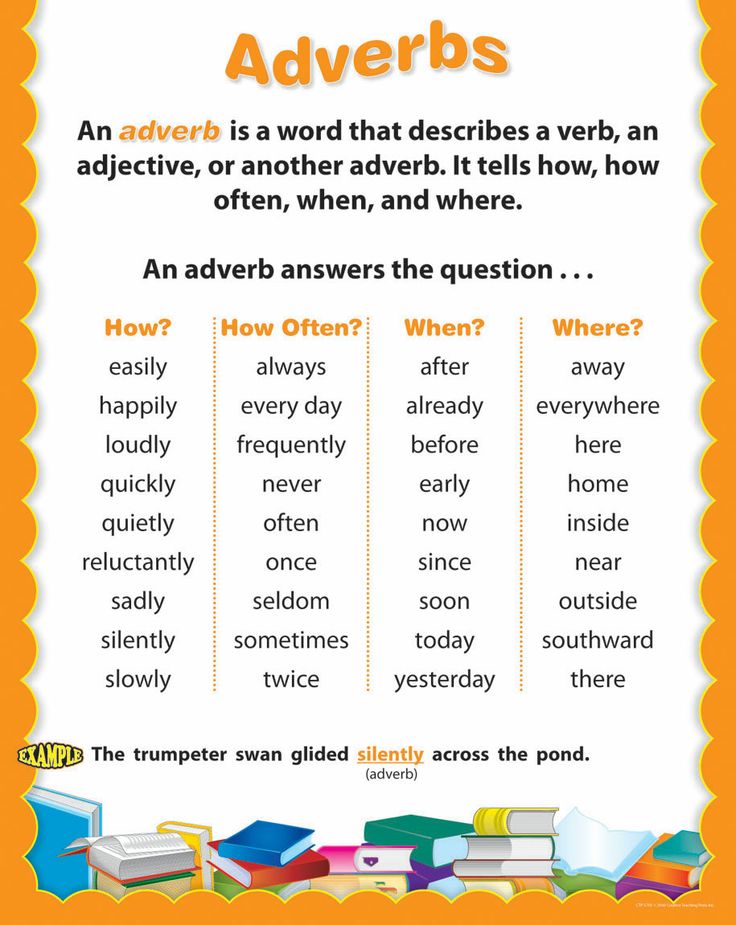 Therefore, he does not tell them the third letter.
Therefore, he does not tell them the third letter.
The goal of the game is to guess the word the host has in mind. This can be done both in the process of guessing, and by naming it right away (there are such cases).
Illustration: Shutterstock (arkana.studio)
10 word games that will entertain the whole family
They will help pass the time for those who are very, very bored, and at the same time train their memory and repeat the rules of spelling. These games have a huge plus: they don't need any "special equipment" at all. You can play at home (and without being distracted from other things: at the same time, for example, removing toys), in the car and even on the phone when you are forced to be in quarantine.
1. "Two letters"
A complicated version of the usual word game: you need to come up with a new word not for the last letter, but for the last two: "parsley - cabbage - plate - cuttlefish - heron - frog - quarantine" .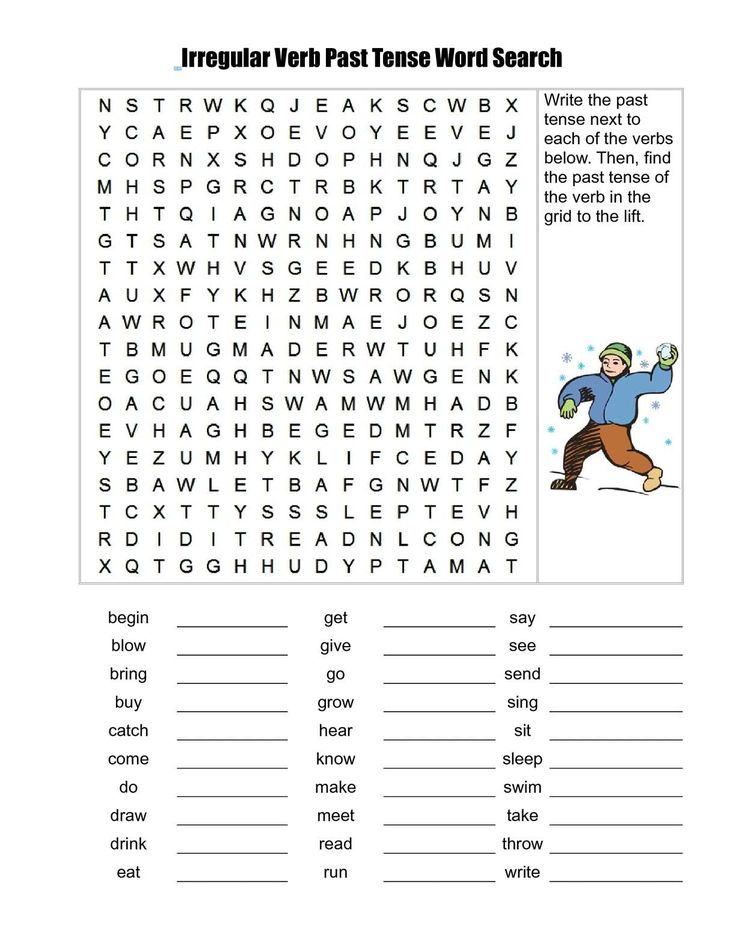
2. "What's in the middle?"
Name any 2 letters: for example, "P" and "A". The task of other players is to come up with as many words as possible, where “P” will be the first, “A” will be the last.
The number of letters in words can be any. Well, offhand: "river", "hand", "grove", "turnip", "rhyme", "rumba", "rocket", "rowan", "chamomile", "reconnaissance" and even "reconnaissance"!
3. Packing the suitcase
The driver says: “I am going to the country house and I am taking some important things with me” and lists 2-3. The trick is that all these things have one common feature. (It is better to choose something non-obvious). For example, he thought that he takes everything yellow with him. And he says: "I take a bottle of oil and a bouquet of buttercups."
Players should be asked questions (Can I bring my bike? Cat? Textbook?) trying to figure out what kind of things get into the suitcase.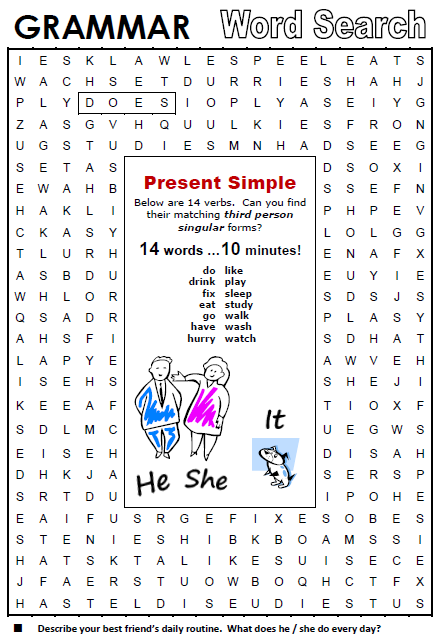
4. “Where did the vowels hide?”
Name 2 (for older children you can also 3.4) vowels: "I", "A". You need to quickly come up with words that have these vowels. It can be complicated by agreeing that they should be in a certain order: “fox”, “willow”, “cornfield”, “nettle”, “titmouse”.
5. “Guess the homonyms”
Guess a couple of homonyms (words that sound the same and have different meanings) and describe: “It can be small and iron – noisy and wet” (“key”). What other homonyms can you think of? "Bow, weasel, brush, pen, mink, leaf, mouse, shop, braid, kiwi, fox".
6. “What fits? «
Name any trait - the other player must quickly list any items that match it: the more, the better. For example, you say "warm". What is suitable? “Compote”, “rain”, “hugs”, “wishes”, “battery”…
7. “Five words”
The main thing in this game is to keep a fast pace.